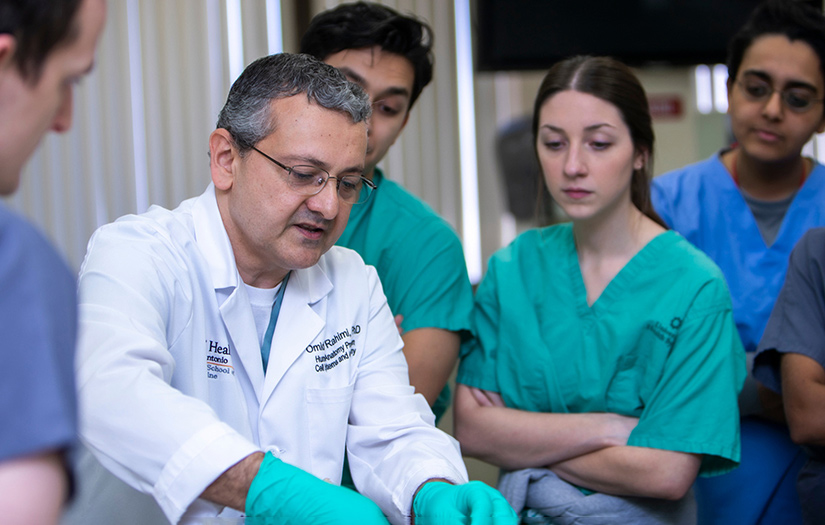
Preclinical Curriculum
Undergraduate Medical Education
Doctor of Medicine (M.D.)

Foundational modules
The 20-month preclinical curriculum begins with three foundational modules, Molecules to Medicine, Attack and Defense and Language of Medicine. Within each module, there is a progression of knowledge in a systematic fashion and weekly thematic content synthesized via a small group interactive patient case.
-
Molecules to Medicine
CIRC 5007. Molecules to Medicine. 9 Credit Hours.
The Molecules to Medicine module provides the foundation for subsequent courses and clinical practice. Through active, collaborative learning activities which may include, but are not limited to, laboratory, small group, and clinical case sessions the students gain a deeper understanding of the homeostatic structure of molecules, cells, and tissues. Students develop problem-solving skills in a multidisciplinary approach to human health and disease.
-
Attack & Defense
CIRC 5009. Attack and Defense. 9 Credit Hours.
The Attack and Defense module is an integrated and innovative look at microbiology, immunology, and infectious disease including public and international health issues. Students are prepared for clinical encounters requiring diagnosis, treatment, and preventive measures for immunological conditions and disorders and infectious diseases by fostering critical thinking skills. The learning environment promotes professional identity formation, effective communication and professionalism. Students acquire a broad understanding of normal and abnormal immune system function through active, collaborative learning activities which may include, but are not limited to laboratory, small group, and clinical case sessions.